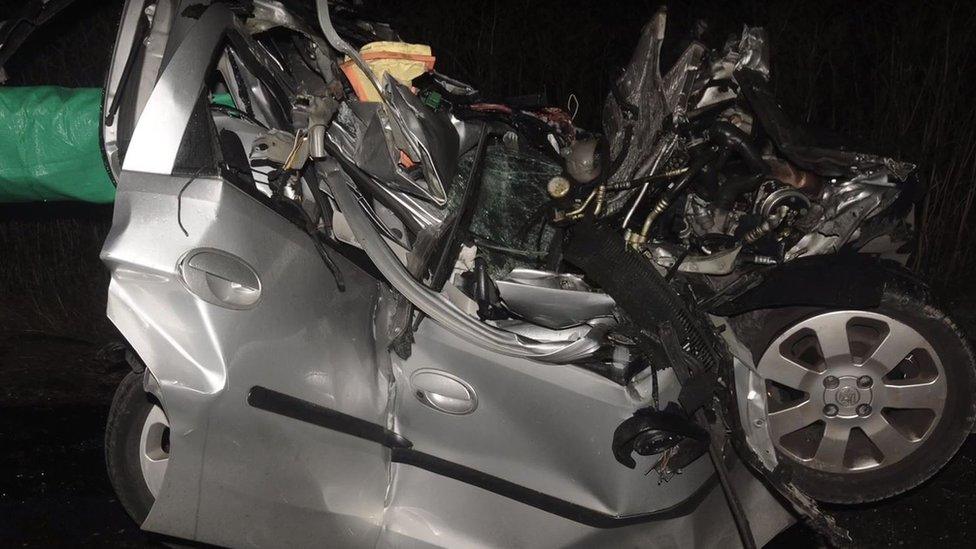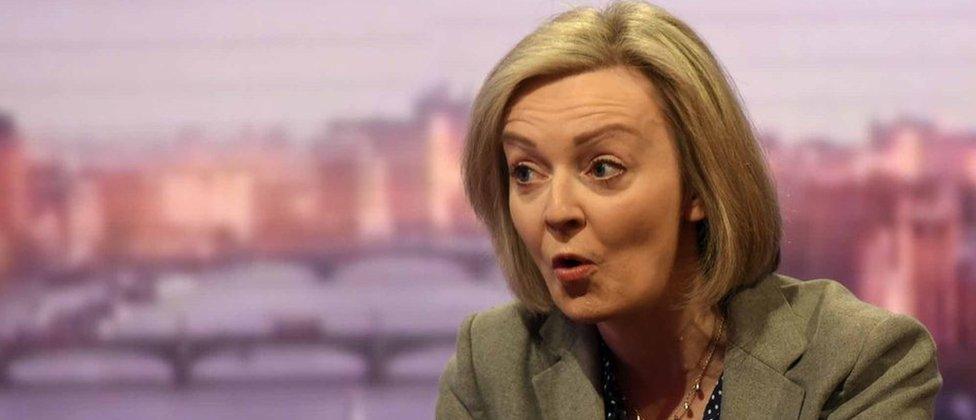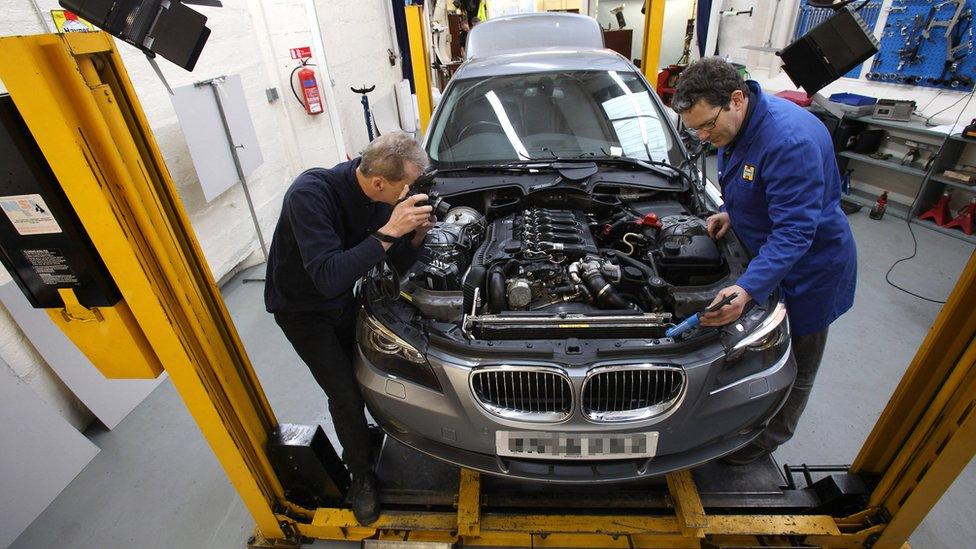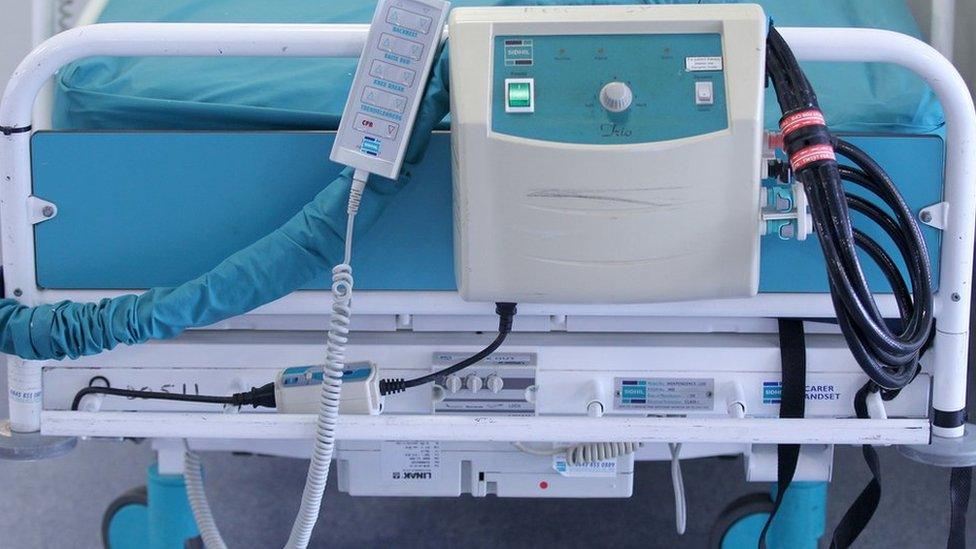Insurers shocked by reform to compensation payouts
- Published

The decision to radically alter the formula for calculating lump sum personal injury payments has shocked the insurance industry.
The size of the change has come as a big surprise and several insurers have warned their profits will be dented.
However, the change has been welcomed by the Association of Personal Injury Lawyers (APIL).
They said it was "long overdue" after lobbying for a change in the formula for several years.
APIL said the decision of Liz Truss, the Lord Chancellor, was in the best interests of injury victims who might require life-long care, and that the claim that insurance premiums must now rise "beggared belief".
Profit warnings
The reaction of the insurance industry has been overwhelmingly negative, with insurers' share prices dropping in the aftermath of a flurry of emergency stock exchange announcements.
Direct Line said it was disappointed by the decision, and that its profits for 2016 would be cut by between £215m and £230m
Motor insurer Admiral has delayed the announcement of its annual results by one week and said its profits might fall by as much as £100m
Novae has revealed a £55m hit to its costs for 2016. The company said it had sufficient reserves to cushion the blow, but suggested it might cut its final dividend to shareholders
The Liverpool Victoria friendly society (which trades as LV=) said the change would cost it £100m.
Change overdue
The change in the compensation formula will come into effect from 20 March this year.
The discount rate that underpins it - the assumed rate of return on investing the lump sums - has not been reviewed since 2001.
The apparently sudden change was prompted by a renewed threat late last year from APIL.
It revived a judicial review against the government's reluctance to change the formula, which the lawyers had argued was long out of date.
"People who suffer severe life-changing injuries can now be assured that the compensation needed to look after them is calculated correctly and is sufficient to provide care for the rest of their lives," said APIL.
"Meanwhile insurance companies, which have saved millions of pounds in unpaid compensation, have been aware that a decision to change the discount rate has been on the cards for six years, since APIL first began judicial review proceedings on the issue."
Andrew Tyrie, chairman of the Treasury Committee, said the Lord Chancellor appeared to have had little choice but to reduce the discount rate from 2.5% to minus 0.75%, but that it needed to be re-thought.
"The principle that people should receive full compensation for the losses that they have suffered is a reasonable one," Mr Tyrie said.
"But implementing it in this way is probably not, and has a look of absurdity about it."

The Lord Chancellor, Liz Truss, said she recognised the impact the changes would have
The Lord Chancellor appeared to acknowledge that the whole business of changing the discount rate had been unsatisfactory.
She will now hold a consultation before Easter on how the compensation formula should be reviewed in the future, including the possibility of using an independent body to make the decision on any alteration.
The consultation will also look at the frequency of changes to the formula and the validity of basing it entirely on the returns to be made from investing in index-linked government bonds.
"I recognise the impacts this decision will have on the insurance industry," Liz Truss said.
'Reckless in the extreme'
The Association of British Insurers (ABI) said the government's approach was not good enough and demanded an immediate change in the law to abolish the current formula.
It argued that in fact there was no legal obligation on the government to make a change at all.
"To make such a significant change to the rate using a broken formula is reckless in the extreme, and shows an utter disregard for the impact this will have on consumers, businesses and the wider operation of the insurance market," said Huw Evans, the ABI's director general.
The price comparison industry may benefit as higher premiums will prompt more people to look for cheaper insurance.
"The discount rate has been changed in a far more drastic way to what insurers had been expecting," said a spokesperson for one such site, Comparethemarket.com.
However, they added: "The concern is that the discount rate change will see much of the money move from the pockets of motorists and into those of personal injury lawyers, who campaigned for it."
Shares in insurance companies dropped sharply following the announcement.
Direct Line shares fell 7.2% while Novae was down 5.6% and Admiral Group dropped 2.5%.
- Published27 February 2017

- Published3 February 2017

- Published23 December 2016

- Published29 September 2016
